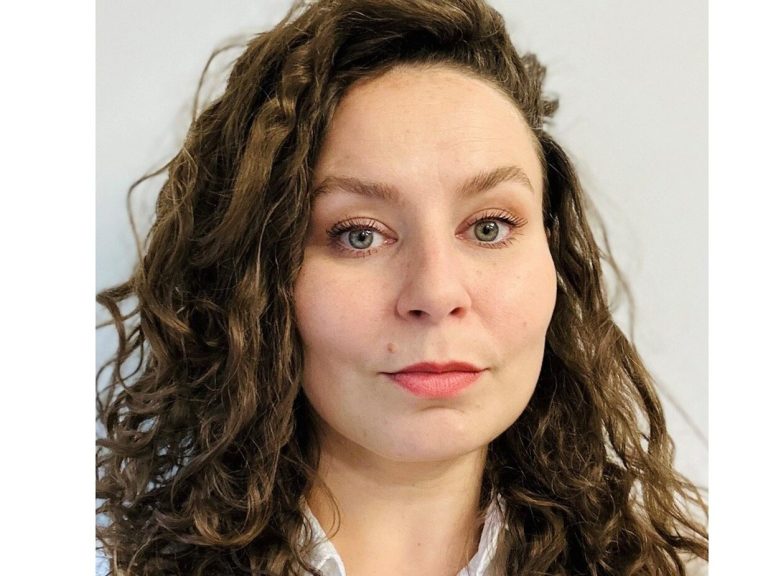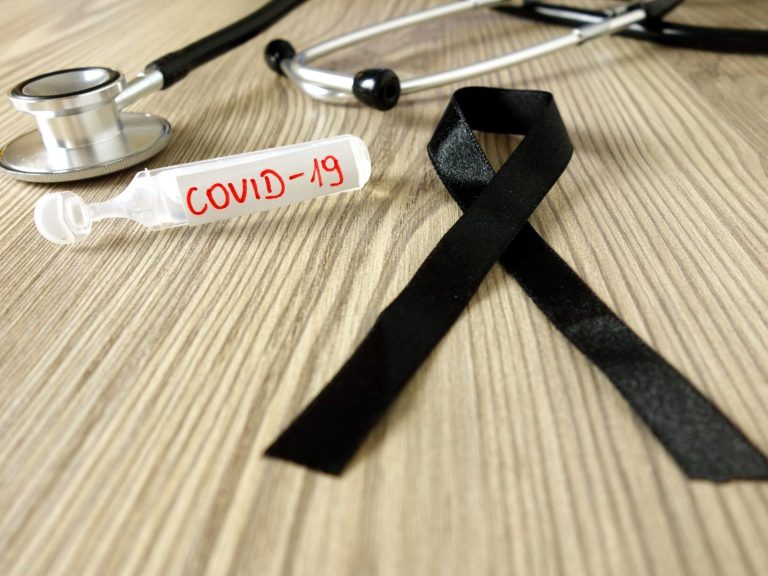Dr. Przemysław Stypień: First of all, trust!

– Accepting your appearance is extremely important for your well-being and maintaining high self-esteem. When we like our body, we are more self-confident, satisfied and effective in our professional and personal lives. Of course, the point is not to build this acceptance through efforts. The way I see it, beauty actually comes from within us, and a well-groomed appearance is just a complement that is worth striving for. With age, this care may be increasingly associated with aesthetic medicine treatments – says Dr. Przemysław Styczeń from the Aesthetic Medicine Clinic, Dr. Przemysław Styczeń.
“Wprost:” Trust is one of the pillars on which the patient-doctor relationship is based. How do you build this trust?
Dr. Przemysław Stypień: In my opinion, trust is primarily two-way communication and honesty in conversation with the patient. I am never motivated by the desire to sell what is newest or what we have invested in and now want to “pay off”. I treat patients as I would like to be treated if I were in their shoes – with attention, empathy and respect for their needs and expectations. I listen a lot, explain a lot and always try to give the best advice possible. I believe that without a human, direct approach, there is no way to build mutual trust.
And when the decision regarding a specific procedure, method of treatment, or therapy has already been made?
Then I tell you exactly what the procedure looks like, how the recovery will take place, what to pay attention to after the procedure and what its effects will be.
I never encourage a patient to want “more”. If, after obtaining all the information, the patient has doubts whether to undergo the procedure or not, I advise you to stop and think about it.
If you hesitate between a smaller and larger amount of the preparation, I advise you to choose less. If you are unsure, it is better to postpone the decision and come back to the topic after some time or finally give up. Undergoing the procedure must be accompanied by the belief that it is a good choice.
Do you have enough time to take into account all these aspects in your office, during meetings with patients?
Yes. I devote a lot of time to each patient. I plan visits in such a way as to give both parties comfort without fear that others will wait due to delays. I believe that the availability of a doctor, guaranteeing the opportunity to talk freely and ask questions is important at all times. Also after the procedure, which is why all my patients receive my private telephone number so that they can contact me, regardless of the clinic’s opening hours.
Unheard of practice!
It is extremely rare for me to come across situations where someone abuses it. I want the patient to know that if he needs anything, I will be able to help him or dispel his doubts. Sometimes a small bruise can keep a patient awake at night, but one photo sent to me is enough for me to calm him down or react if the situation requires it.
Besides, I prefer to help as quickly as possible, before a scared patient starts looking for answers to his questions on the Internet…
I do not divide the time I devote to patients between several facilities, I am not on duty at night, and I do not work in a hospital. The clinic is my basic life and professional activity. Therefore, I do everything to have 100 percent satisfied patients. Even if I have to suffer a loss or have no profit, for me the determinant of success is always the patient’s satisfaction.
You often say in interviews that “less is more.” Am I to understand that you sometimes tell a patient “stop” when she clearly has a disturbed self-image or wants too much to resemble some role model from social media?
This applies especially to younger people, people in their twenties, and increasingly also to men. I try to talk in such a way that the patient can check for himself where his motivation comes from, what guides him when choosing the treatment and whether it is good for him. It doesn’t look like I’m saying no and that’s it. Together with the patient, we try to determine what he needs, not just what he wants. We often manage to replace an unnecessary or inadvisable procedure with another one that is beneficial to the patient’s appearance. However, people with disturbed self-image, as you called it, are very difficult to stop…
What does it mean?
Information from a doctor that it is not worth doing a treatment, repeating it too early or adding a preparation is often misunderstood. As is the suggestion that the effect the patient expects will look artificial. Of course, some people have trouble withdrawing the expectations they came with.
Therefore, if you ask me if I refuse, I must answer that I have refused many times. The problem, unfortunately, is that even if I do this, there will always be someone on the market, for example a cosmetologist or a doctor who defines naturalness differently, who will do it.
And the other way around? What if someone came and asked you to “fix” something that clearly didn’t work?
We always fix what we can.
In interviews, you also emphasize that although you are an advocate of innovations, each new equipment or cosmetic is thoroughly checked by you and your colleagues before it reaches the office.
Yes Sir. The thoughtless absorption of news can be painful.
Why?
Let’s imagine that a new, very expensive device appears on the market, and its seller convinces us that it is great. We buy them, but after a few or a dozen treatments performed in the first period after purchase, it turns out, for example, that the effects are not as good as we thought, or complications occur very quickly. The device goes to waste and we lose money. The situation is similar with new preparations, although the scale of possible losses is different.
From a different perspective – I never use procedures and products whose effectiveness, let alone safety, I am not completely sure of. That’s why I look at all new developments very carefully and with some distance.
Since we’re talking about money, I’d like to ask about the future of the industry. Do you think aesthetic medicine will develop as dynamically as before?
All data indicates yes. The only limitation is the economic situation, which has made itself felt very strongly in the last year. However, when it comes to the popularity of treatments, the trend is strongly upward. This applies to both plastic surgery and aesthetic medicine and cosmetology.
When it comes to possible changes ahead of us, there is a lot of talk about the division of duties mentioned: cosmetologist – doctor. A final determination of who can and should do what is needed. Although for now the legislator is not very interested in it, and cosmetologists are very defensive of their rights.
An important step was certainly the decision by the Ministry of Health to include aesthetic and restorative medicine on the list of professional skills of doctors and dentists. This is another confirmation that this type of treatments are reserved only for people with medical education. Cosmetologists, with all due respect to their knowledge and skills, do not have it.
A holistic approach to therapy will certainly become more and more popular. Patients must be aware that without proper nutrition, exercise, eliminating stimulants or problems with insomnia, we will not achieve miracles with treatments alone. The action must be multidirectional and the role of doctors is also to educate patients in this field.
Also in terms of the above-mentioned division of powers between doctors and cosmetologists? Do you also have a mission today to educate patients and perhaps future patients about how important it is to choose a doctor who you can trust with your health and appearance, and not a random person performing treatments?
From my point of view, the most important thing is that patients are aware that most aesthetic medicine treatments should be performed only by a doctor, not a cosmetologist or even worse – a beautician or hairdresser.
On the other side, there is often an argument that we want to exclude other professions from treatments for financial reasons. I think that if those who say this saw so many tragic effects of the work of unauthorized people, i.e. unprepared for this type of interference with the body, they would change their minds.
Let me tell you straight – sometimes you feel like crying when you look at the tragedy of mutilated patients who not only suffer physical and mental pain, but will have to struggle for the rest of their lives with the consequences of someone else’s ignorance, inadequate self-confidence and uncritical attitude in undertaking something they had no idea about. concept.
What could be the scale of this phenomenon?
I think it’s very big. Cosmetologists often thoughtlessly perform very dangerous procedures, such as implanting lifting threads, administering tissue fillers, using drugs (botulinum toxin), taking blood and preparing platelet-rich plasma, etc.
There is a postgraduate education system in Poland for doctors in the field of aesthetic medicine. Our societies regularly organize conferences and scientific congresses. The doctor has the opportunity to take part in courses and training, not only in Poland, but also abroad. From time to time we try to hold classes in the mortuary. Cosmetologists rely only on several hours of training.
How did it happen that you got involved in aesthetic medicine?
I’ve always been passionate about it. Accepting your appearance is extremely important for your well-being and maintaining high self-esteem. When we like our body, we are more self-confident, satisfied and effective in our professional and personal lives. Of course, the point is not to build this acceptance through efforts. The way I see it, beauty actually comes from within us, and a well-groomed appearance is only a complement, but it is worth striving for. As we age, this care may become more and more associated with aesthetic medicine treatments.
Aesthetic medicine is not just about lip augmentation, but is a broad, extremely important field that I want to devote time to and engage in to help patients improve their quality of life. Very often in cooperation with other specialists – an endocrinologist, a psychotherapist or a diabetologist. Changes in appearance are a way to a better life!
More information: www.drstyczen.pl.






